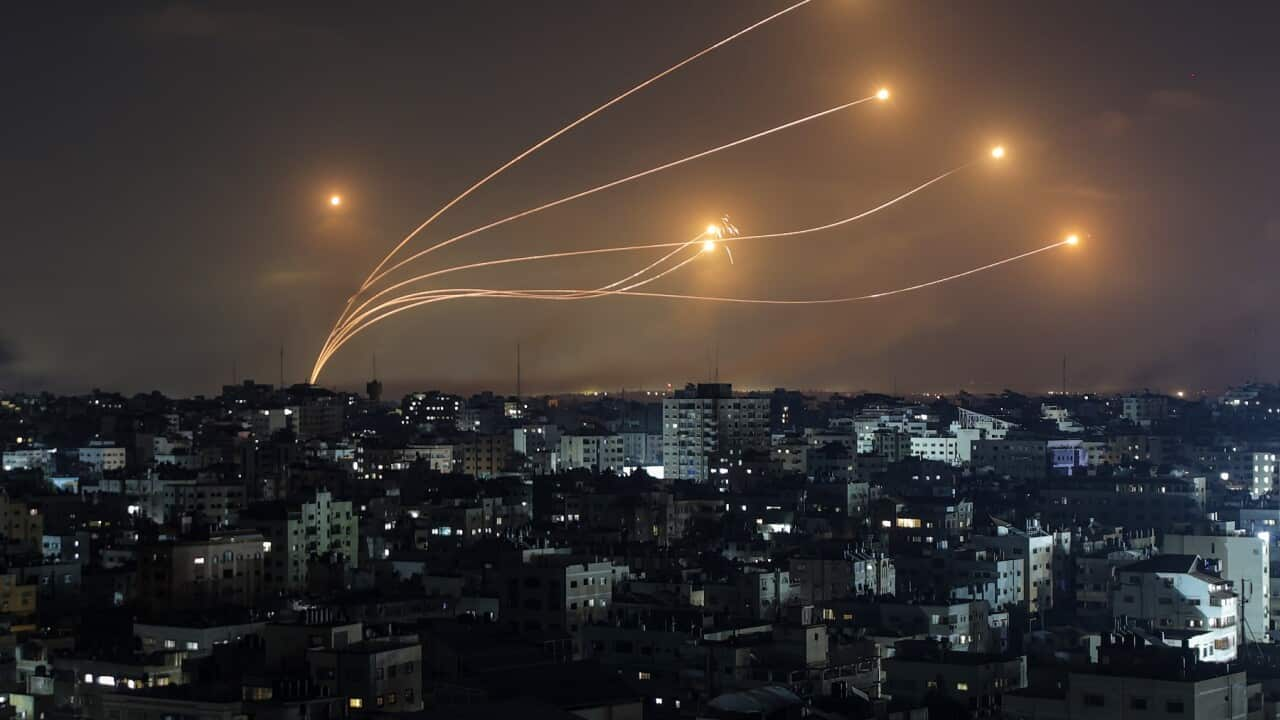TRANSCRIPT
The war between Hamas and Israel now raises concerns about the humanitarian situation in the Gaza strip and the future of the Israeli government.
In response to the surprise attack by Hamas militants that killed more than 1,200 people in Israel and an unknown number of hostages, Israel has blockaded the Gaza strip.
The significant escalation is the latest boiling point in a long-standing conflict between Israel and Hamas.
Hamas is a Palestinian military and political group, gaining power in the Gaza Strip since winning legislative elections there in 2006.
Hamas’s stated aim is to establish a Palestinian state, while refusing to recognise Israel’s right to exist.
The only power plant in the territory has now shut down completely due to a depletion of fuel, leaving its 2.2 million inhabitants without electricity.
Gazans are also deprived of access to food and water, and at least 1,100 people were killed in Israel's military retaliation.
United Nations Secretary General Antonio Guterres:
“Civilians must be protected at all times. International humanitarian law must be respected and upheld. About 220,000 Palestinians are now sheltering in 92 UNRWA facilities across Gaza. Crucial life-saving supplies – including fuel, food and water -- must be allowed into Gaza. We need rapid and unimpeded humanitarian access now.”
The Palestinian envoy to the United Nations Riyad Mansour is asking for immediate help:
“There has to be access to the Gaza Strip to provide medical and humanitarian assistance. The situation is extremely horrific against our civilian population. The destruction is beyond imagination. We hope very soon that the international community will rise up to the to their responsibilities and begin with the process of sending humanitarian help and assistance. This, of course, would require to have a ceasefire or stopping the bombardment of the Gaza Strip.”
Israel made it clear it wants to destroy Hamas, but the Palestine Red Crescent Society has accused the Israeli military of targeting their medical teams and hampering efforts to save civilian lives within the Gaza Strip.
Eleven United Nations Palestinian refugee agency workers and five members of the International Federation of Red Cross and Red Crescent Societies have been killed.
Marwan Jilani is the Director General of the Palestine Red Crescent Society.
“We face intimidation. Our teams are beaten up. The guns are pointed to the faces of our medical teams at checkpoints. And this is quite tragic. And these are considered war crimes to target medical teams. To target civilians and to leave them under the rubble and to leave the injured without any possibility of access to aid.”
On the other side, the extend of the casualties and the unknown fate of the hostages has shocked the Israelis.
After months of bitter infightings over judicial reforms, the entire political class of Israel is now eager to work together, and the opposition and majority agreed to form a unity government to serve as a war cabinet.
Benny Gantz, the leader of the opposition in Israel and until now an opponent of Prime Minister Benjamin Netanyahu, is expected to join the cabinet.
“The state of Israel will be the strongest state in the region. It has the most powerful army in the world, it has the best people in the world. We see it with one plane after another full of young men coming back to defend their home. And they can already feel this force in Gaza. And they will feel it in Lebanon if need be. And the whole world will see it.”
The United States are showing support to Israel through the words of President Joe Biden:
“And I would argue it's the deadliest day for Jews since the Holocaust, the deadliest day since Holocaust. One of the worst chapters in human history that reminds us all that that expression I learned from my dad early on, silence is complicity.”
The White House also announced the number of American citizens killed is 22 with at least 17 more unaccounted for.













